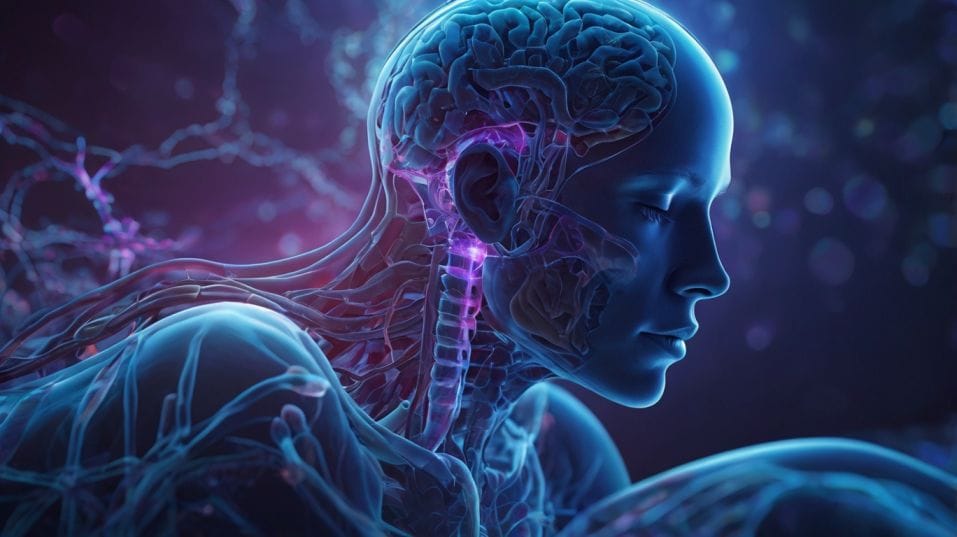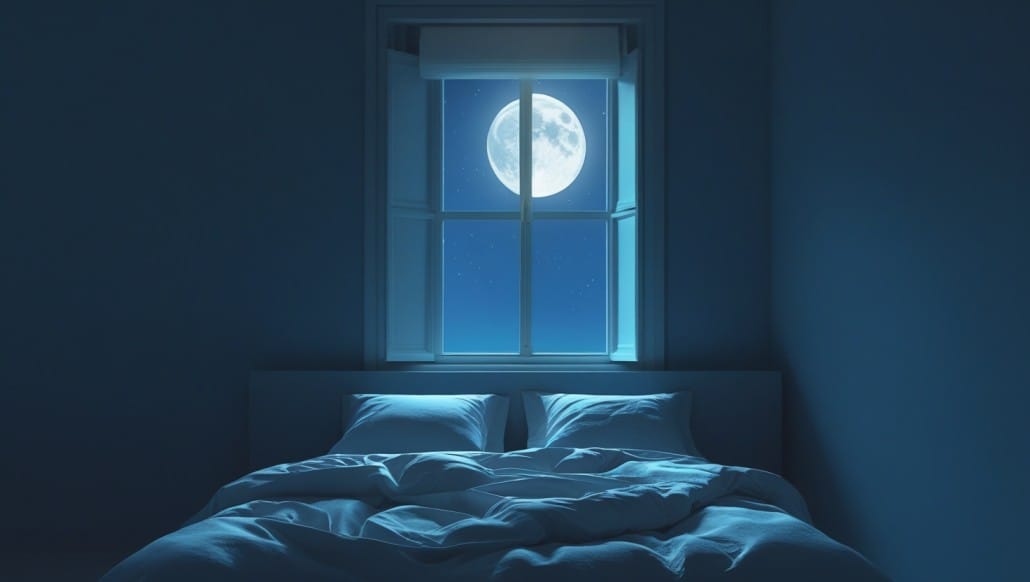What Happens to Your Body During Deep Sleep
Unlock better energy, recovery, and focus by mastering deep sleep with simple, science-backed habits that transform your nights and days.

What if the real upgrade to your energy, focus, and recovery wasn’t another supplement—but something you’re already doing every night?
Deep sleep is when your body shifts into full rebuild mode, locking in everything you’ve earned during the day.
When you understand what happens during this powerful stage, you can stop just "getting by" and start waking up stronger, clearer, and more unstoppable. Here’s how deep sleep becomes your ultimate health advantage.
The Hidden Power of Deep Sleep
Deep sleep, also called slow-wave sleep, is a stage where your brainwaves slow to a low-frequency, high-amplitude pattern. You aren’t dreaming here.
You’re not tossing, turning, or lightly snoozing. You are fully offline—and that's exactly when your body gets to work.
During deep sleep:
- Growth hormone floods your bloodstream. This isn’t just for bodybuilders; it’s essential for cellular repair, bone density, and muscle maintenance. Even minor tears in tissues from daily life get patched up.
- Your immune system runs diagnostics and repairs. Deep sleep literally makes you harder to kill by upgrading your immune defense.
- Blood supply to your muscles increases, fueling them with more oxygen and nutrients for healing.
- Your brain shifts from external awareness to intense internal housekeeping, flushing out waste and building stronger neural connections.
Miss deep sleep, and you miss all of that behind-the-scenes optimization. You might get through the next day, but you’ll be dragging, more likely to get sick, and stuck in a cycle of surviving instead of thriving.

How to Fall Into Deep Sleep Faster
You don’t need to overhaul your life to start getting better deep sleep. Here’s where science meets real-world strategy.
First: Consistency. Your body loves patterns. Go to bed at the same time every night—even on weekends—and your brain starts predicting sleep and prepping for it ahead of time.
This “anticipation effect” helps you sink into deeper stages more efficiently. Second: Temperature control. Studies show your core body temperature needs to drop about 1–2 degrees to kickstart deep sleep.
Sleep experts agree that keeping your bedroom between 60–67°F (16–19°C) creates the ideal environment.
Blackout curtains, breathable sheets, and even a warm shower 90 minutes before bed (it cools you down afterward) can all make a difference.
Third: Light exposure. Bright light in the morning, minimal blue light at night. Natural sunlight exposure early in the day sets your internal clock so that melatonin—the sleep hormone—peaks at the right time later.
At night, cutting screen time at least 60 minutes before bed helps you slide into deep sleep instead of fighting it. Small moves, big impact.
Your Brain: Spring Cleaning While You Sleep
While your body works on repairs, your brain enters a different kind of high-performance mode.
Deep in slow-wave sleep, your glymphatic system (the brain’s unique waste clearance network) goes into overdrive.
Think of it like pressure-washing your brain cells, flushing out metabolic waste products that accumulate during your waking hours.
Among these wastes: proteins like beta-amyloid, which, when left to build up over time, have been linked to cognitive decline.
This clean-up isn't optional—it’s vital for long-term mental sharpness. Miss deep sleep consistently, and you’re asking your brain to operate while clogged with yesterday’s trash.
Deep sleep also plays a massive role in memory consolidation. It’s when short-term memories move into long-term storage.
New languages, skills, emotional learning, even muscle memory from your workouts—all of it gets processed and filed away during these critical phases.
If you're trying to work smarter, learn faster, or stay mentally sharp as you age, deep sleep isn't just helpful—it’s your brain’s most powerful ally.
How to Hack Your Brain for Deeper Sleep
Cutting caffeine after noon is the easiest win you’re probably ignoring. Caffeine’s half-life is about 5–6 hours, meaning that 3 PM espresso shot could still be lighting up your nervous system at 9 PM.
Another powerful but underused strategy: daily movement. Moderate exercise earlier in the day—not at night—improves deep sleep quality.
You don't need marathon sessions. A brisk 30-minute walk outdoors checks the boxes for natural light exposure, circulation boost, and fatigue building—all of which set the stage for deeper, more restorative sleep at night.
Your Body: Recovery on Autopilot
You’re not just resting during deep sleep. You’re rebuilding a stronger version of yourself.
- Muscle repair kicks into high gear. Whether you’re lifting weights, running miles, or just moving through a busy day, small muscle fibers get stressed. Deep sleep is where real growth and healing happen.
- Fat burning subtly increases. Deep sleep helps regulate hormones like leptin and ghrelin—the ones that control hunger and fullness. Better sleep = better metabolic control without crash diets or endless cardio.
- Skin regeneration accelerates. Growth factors that rebuild collagen, repair sun damage, and strengthen your skin barrier are most active during slow-wave sleep.
- Injury recovery speeds up. Your body's inflammatory response resets, wounds close faster, and soreness fades more efficiently.
This is why no amount of supplements, skincare, or “biohacks” can replace good deep sleep. It's the base layer that makes every other health goal easier to reach.
Set the Stage for Full-Body Recovery
You don't have to build an elaborate “sleep castle” with sound machines, weighted blankets, and herbal teas (though those are fine if you love them).
Focus first on creating a "sleep trigger" environment:
- Start dimming lights an hour before bed.
- Keep your wind-down ritual simple: something calming, tech-free, and repeatable.
- Cool your room.
- Stick to a regular schedule.
Layer in other tools if you want. But if you get the basics locked in, you'll notice better deep sleep without turning your nights into a complicated checklist.
Final Thoughts
Deep sleep is where your real health transformation begins. It’s when your body rebuilds stronger, your brain clears itself sharper, and your energy resets fully. It’s not a luxury or an upgrade—it’s the foundation everything else depends on.
Start simple. Pick one change. Maybe it's setting a consistent bedtime. Maybe it’s cutting caffeine earlier. Maybe it's getting sunlight in your eyes first thing tomorrow morning. Stack wins, night after night.
Your best energy, recovery, and focus are already inside you. Deep sleep is the key to unlocking it. Start tonight.




